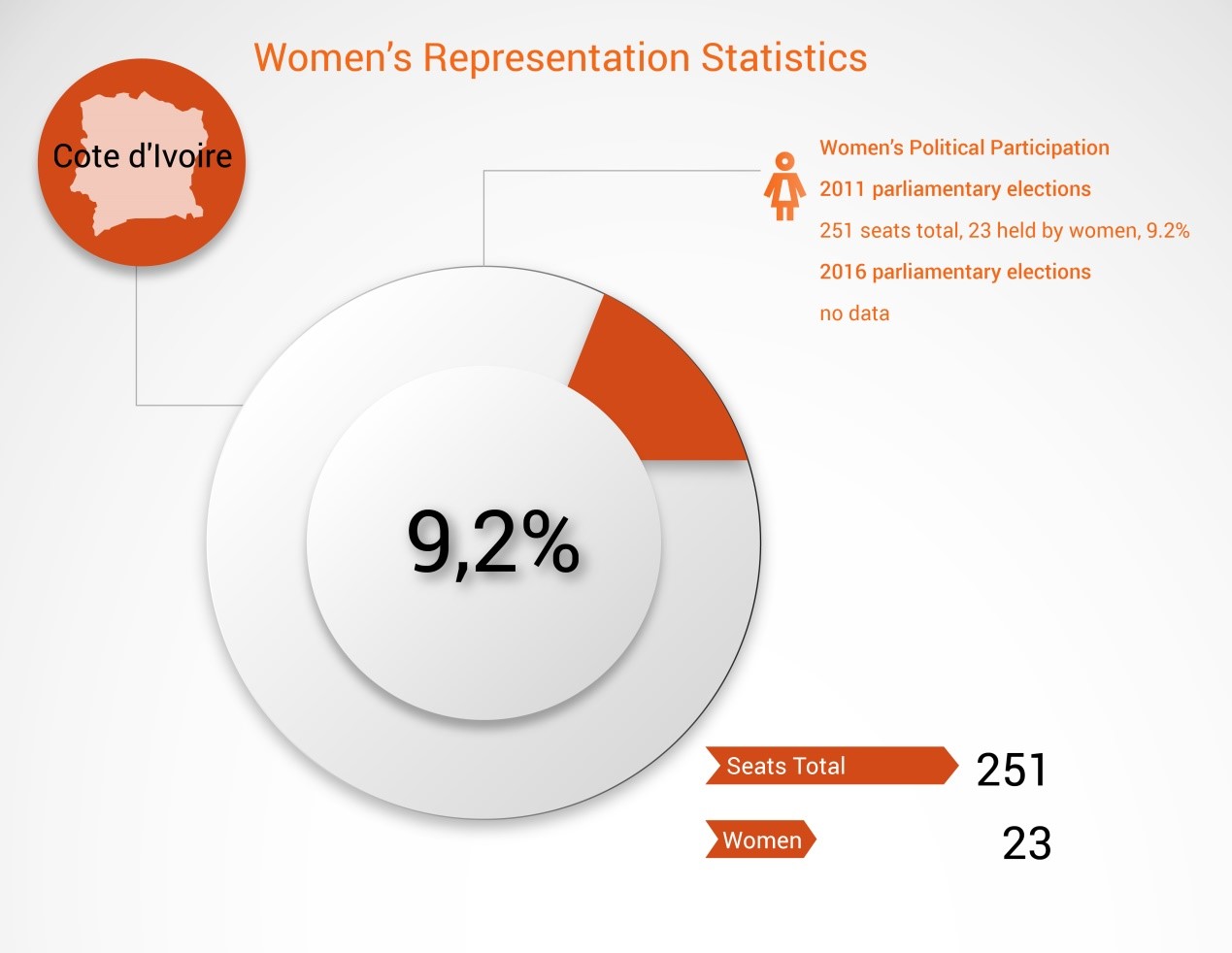2016 Elections Monitoring
Parliamentary elections in Cote d’Ivoire were held on 18 December 2016.
The Rally of Houphouetists for Democracy and Peace won more that the half of the seats in the National Assembly. It has to be noted that these are the first elections after the adoption of a new constitution which was adopted after a referendum held on 30 October 2016 and reduced the term for the 255 members of the National Assembly from five to four years. Accordingly, in the National Assembly, 255 members are elected by first-past-the-post voting in 205 single and multi-member constituencies to serve four-year terms. Additionally, the new Constitution will switch Cote d’Ivoire to a bicameral system with an indirectly elected Senate and directly elected National Assembly. Until the Senate is formalised, the National Assembly will serve as the only legislative body.
Women’s Political Participation
Unfortunately, there is still no data available on women’s representation in parliament after the last elections. However, until the beginning of December 2016, women held 23 seats out of 251 seats in total which could be considered as quiet low. In 2014, a series of recommendations were agreed upon to enhance women’s participation in parliament, including changing the electoral law to introduce quotas for women candidates. Adapted to the first-past-the-post election system, the proposed quotas would mean a minimum of 33 per cent of women candidates in the 2016 elections, rising to 50 per cent in 2020. Nevertheless, it seems that these proposals are not yet included in the new Constitution.
Article 30 of the Ivoirian Constitution grants equal rights to women, and article 3 commits the state to taking appropriate measures to ensure the development of women and realisation of their human rights. The country ratified the Convention on the Elimination of All forms of Discrimination against Women (CEDAW) in 1995, and in 2012, it ratified the Optional Protocol on violence against women. Despite the fact that there are provisions which promote women’s rights, gender inequality remains widespread in Cote d’Ivoire. The problem can be found in translating the theoretical equality proclaimed on paper into the lives of the women in the nation.
In addition, despite the adoption in 1998 of a law punishing some forms of violence against women (Law n° 98-757), and a law criminalising rape (Law n° 81-640), perpetrators of these crimes continue to benefit from general impunity, partly due to a culture of silence. The general level of schooling is very low, especially for girls: in the northern areas of the country, under the influence of tradition, the population remains reluctant to educate girls, who are often responsible for domestic tasks. In 2009, only 49% of girls were educated at primary school level as opposed to 61% of boys, and over 75% of girls received no secondary school education. The literacy rate for young women aged between 15 and 25 was only 40%
Conclusion
Even though there have been several proposals and recommendations with the purpose to reduce gender parity in Cote d’Ivoire, it seems that gender inequality persists. Women are excluded from political decision-making despite the fact that they constitute half of the population and nearly 52% of voters. Some of the reasons there are so few women in the political sphere is the lack of resources and their political instrumentalisation within the patriarchal system. Further measures need to be implemented and further action needs to be taken in order to empower women’s political participation and representation in the public arena.

